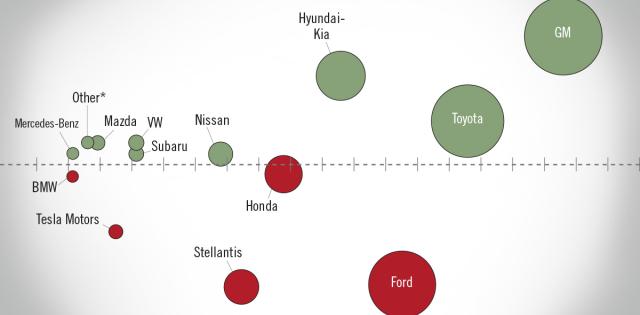Equifax is one of three nationwide credit-reporting agencies that track and rate the financial history of consumers. Equifax recently announced a major breach of the data it stores and news coverage of the breach has been widespread. Equifax has stated that information from as many as 143 million people in the United States was compromised. Given the number of people affected and the sensitive type of information exposed, dealers should understand the basics of the breach and what it means for their customers. In particular, dealership employees should recognize they are likely to: (a) get questions from customers about the breach, and (b) see a potential increase in "credit freezes" and fraud alerts on credit applicants' credit reports. As a result, dealership personnel should review the FTC guidance below and understand what they may encounter, what they should look for, and what steps they should take when facing a fraud alert or "frozen" credit report.
If dealership personnel do get questions, it is important to first explain that the reported breach occurred at Equifax, and does not involve the dealership, data stored at the dealership, or dealership processes. Dealership personnel can also point consumers to the FTC's consumer guidance "The Equifax Data Breach: What to Do?" That guidance: (a) provides a link to the Equifax website where consumers can determine if their information is at risk and how to sign up for the free credit monitoring service provided by Equifax, and (b) provides general information about steps consumers can take to protect their credit, including how to place a fraud alert, or a credit "freeze" on their account.
What if dealership personnel do see a fraud alert or encounter a "frozen" credit report? First, dealership personnel should review the FTC document entitled Fraud alerts vs. credit freezes: FTC FAQs that provides further information about fraud alerts and credit freezes. There, the FTC explains that if a customer's credit is "frozen" then that customer's credit report generally cannot be viewed until the customer takes steps to "unfreeze" their credit. They will be assigned a PIN they must use (and may forget), and it may include a fee that the customer must pay (both to place, and to temporarily "lift" the freeze), and may also include a lead time that could affect a financing transaction. If there is a fraud alert on the credit report, then the dealership must take certain additional steps to verify the identity of the applicant before the credit process can be finalized. Generally, that involves calling a phone number that the consumer provided at the time they placed the fraud alert and speaking with the consumer.
Dealers and their employees should also be aware that there are already scammers trying to take further advantage of the Equifax breach by calling consumers and trying to obtain personal information through false pretenses. See the FTC warning here for more.
Lastly, this is a good reminder for dealers to revisit their Red Flags program to ensure that they are taking the required steps to detect and prevent scammers from opening a line of credit using someone else's information.
Mark Scarpelli is 2017 NADA chairman and president of Raymond Chevrolet and Raymond Kia in Antioch, Illinois, and co-owner of Ray Chevrolet and Ray Chrysler-Jeep-Dodge-Ram in Fox Lake, Illinois.










